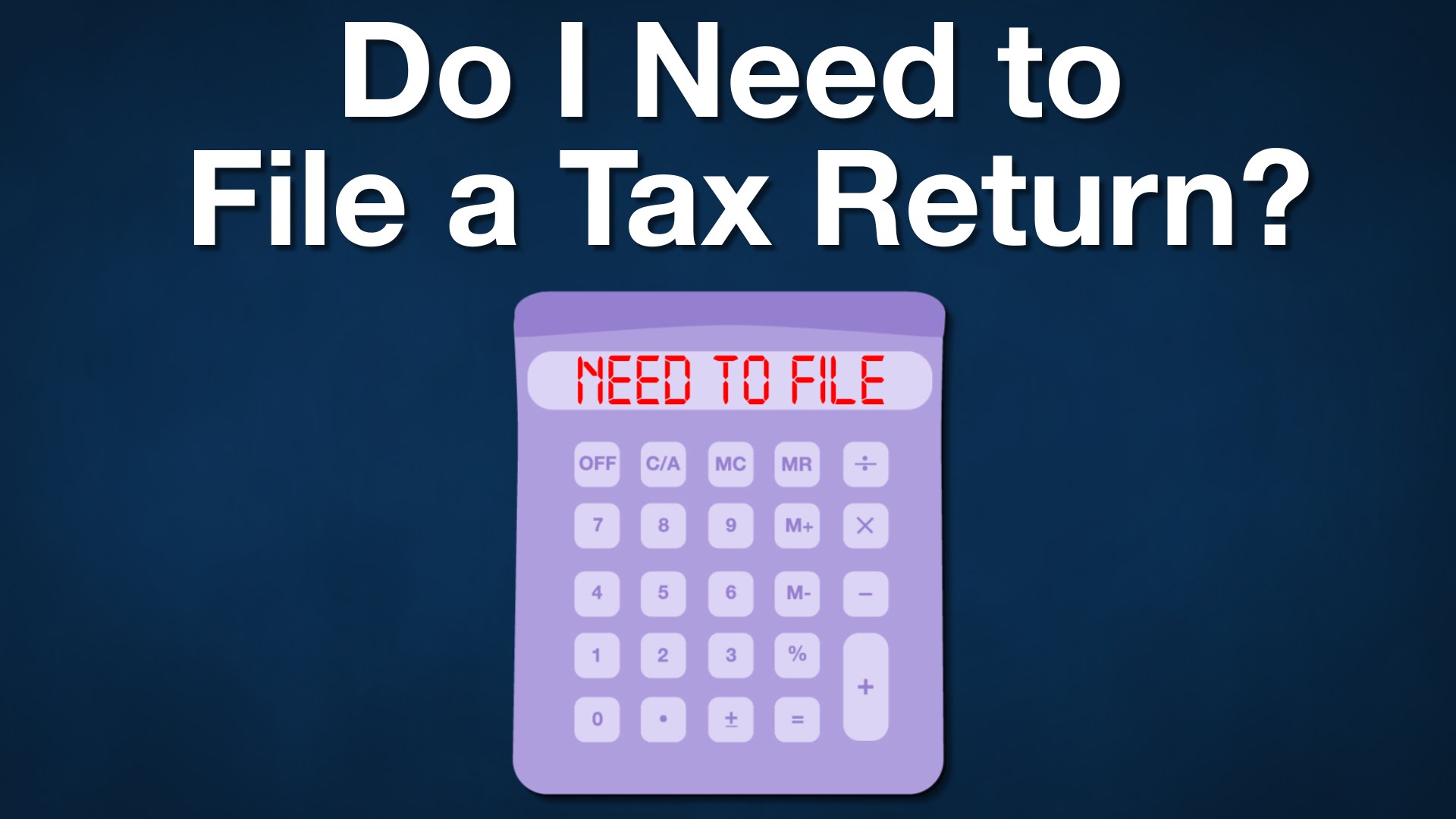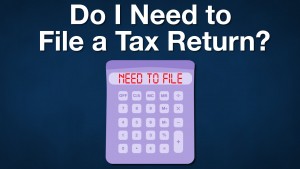
Who Should File a 2015 Tax Return?
 Most people file a tax return because they have to, but even if you don’t, there are times when you should because you might be eligible for a tax refund and not know it. This year, there are a few new rules for taxpayers who must file. The six tax tips below should help you determine whether you’re one of them.
Most people file a tax return because they have to, but even if you don’t, there are times when you should because you might be eligible for a tax refund and not know it. This year, there are a few new rules for taxpayers who must file. The six tax tips below should help you determine whether you’re one of them.
- General Filing Rules. Whether you need to file a tax return this year depends on a few factors. In most cases, the amount of your income, your filing status, and your age determine if you must file a tax return. For example, if you’re single and 28 years old you must file if your income, was at least $10,300. Other rules may apply if you’re self-employed or if you’re a dependent of another person. There are also other cases when you must file. If you have any questions, don’t hesitate to call.
- Premium Tax Credit.If you bought health insurance through the Health Insurance Marketplace in 2015, you might be eligible for the Premium Tax Credit; however, you will need to file a return to claim the credit.If you purchased coverage from the Marketplace in 2015 and chose to have advance payments of the premium tax credit sent directly to your insurer during the year, you must file a federal tax return. You will reconcile any advance payments with the allowable premium tax credit.You should have received Form 1095-A, Health Insurance Marketplace Statement, in February. The new form has information that helps you file your tax return and reconcile any advance payments with the allowable Premium Tax Credit.
- Tax Withheld or Paid. Did your employer withhold federal income tax from your pay? Did you make estimated tax payments? Did you overpay last year and have it applied to this year’s tax? If you answered “yes” to any of these questions, you could be due a refund. But you have to file a tax return to get it.
- Earned Income Tax Credit. Did you work and earn less than $53,267 last year? You could receive EITC as a tax refund if you qualify with or without a qualifying child. You may be eligible for up to $6,242. If you qualify, file a tax return to claim it.
- Additional Child Tax Credit. Do you have at least one child that qualifies for the Child Tax Credit? If you don’t get the full credit amount, you may qualify for the Additional Child Tax Credit.
- American Opportunity Credit. The AOTC (up to $2,500 per eligible student) is available for four years of post-secondary education. You or your dependent must have been a student enrolled at least half-time for at least one academic period. Even if you don’t owe any taxes, you still may qualify; however, you must complete Form 8863,Education Credits, and file a return to claim the credit.
Which Tax Form is Right for You?
You can generally use the 1040EZ if:
- Your taxable income is below $100,000;
- Your filing status is single or married filing jointly;
- You don’t claim dependents; and
- Your interest income is $1,500 or less.
Note: You can’t use Form 1040EZ to claim the new Premium Tax Credit. You also can’t use this form if you received advance payments of this credit in 2015.
The 1040A may be best for you if:
- Your taxable income is below $100,000;
- You have capital gain distributions;
- You claim certain tax credits; and
- You claim adjustments to income for IRA contributions and student loan interest.
You must use the 1040 if:
- Your taxable income is $100,000 or more;
- You claim itemized deductions;
- You report self-employment income; or
- You report income from sale of a property.


Engage us on Facebook
Follow us on Twitter
Tweets by @mymcmedia